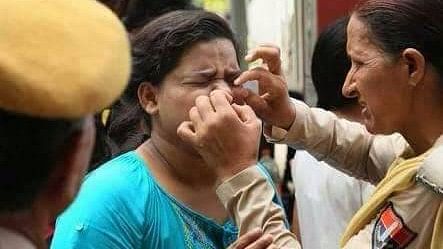Not Just NEET, Frisking of Candidates Is Now Common in Most Exams
The Kannur incident has brought focus to the mandatory frisking of candidates at examination centres.

The Central Board of Secondary Education (CBSE) has now issued a clarification following reports from Kannur in Kerala where a student appearing for the NEET examination was allegedly forced to remove her inner wear for the purpose of frisking.
The CBSE has also asked the principal of the school to tender an unconditional apology to the student. While regretting the inconvenience caused to the student, the CBSE maintained that enforcing dress code and frisking are part of the efforts to ensure fair conduct of the examination.
NEET's Specific Instructions About Barred Items and Dress Code
The CBSE has issued specific instructions to candidates appearing for NEET detailing the barred items and the dress code for the exam.
Apart from prohibiting electronic or communication devices, the CBSE has also prohibited metallic items, eatables.
As per the CBSE’s clarification, such instructions were necessitated following the AIPMT leak in 2015 and the subsequent orders of the Supreme Court to re-conduct the exam in a in a fair manner.
Frisking, Dress Code Part of Process for Most Examinations
The technological advances have made it easier for candidates to cheat in examinations by using phones as it happened in AIPMT in 2015.
For instance, JEE (Advanced) instructions to candidates also mandate a certain dress code.
Same is the case with SBI clerk examinations.
While the UPSC does not explicitly mandate a dress code, it does ask the candidates not to bring any valuable or expensive items to the centres. Even some state public service commissions have mandated similar rules for their examinations.
The staff at the examination centres needs to be sensitised to handle such situations and not inconvenience to students. But frisking and enforcing dress codes seem to be necessary for ensuring fair conduct of examinations.
(This article was first published in Factly)
(At The Quint, we are answerable only to our audience. Play an active role in shaping our journalism by becoming a member. Because the truth is worth it.)